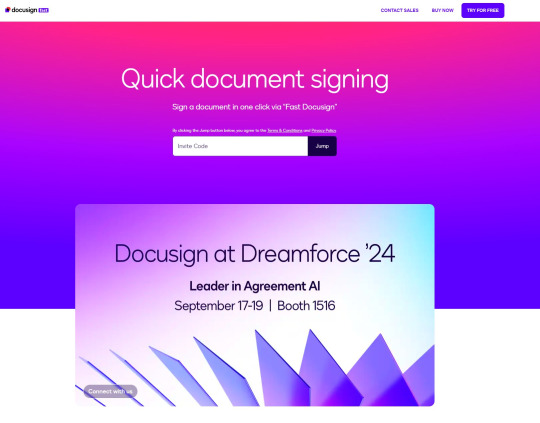#Reputation Management Software
Explore tagged Tumblr posts
Text
Reputation Management Software by Get Reviews Digitally
Get Reviews Digitally delivers powerful Reputation Management Software designed to streamline customer feedback, enhance online credibility, and manage reviews effectively. Boost your brand with our trusted reputation management software tailored for businesses.

#Review Management Software#Reputation Management Software#Online Review Management#Review Management Platforms#Google Review Software#Customer Review Software#Google Review Management Software#Customer Review Management Software#Review Software For Business#Google Review Management Services#Reputation Management Platform#Online Review Management Tool#Online Review Management Software#Online Reputation Management Software#Business Review Software#Best Online Reputation Management Services#Reputation Management System#Review Platforms For Businesses#Reputation Monitoring Software#Get Online Reviews For Your Business
0 notes
Text

Mastering Online Reputation with AI
Discover how reputation management software helps brands monitor, respond, and build trust in the digital space.
1 note
·
View note
Text
Grow Trust with ORM Solutions for Professionals
Professionals like doctors, lawyers, and entrepreneurs also face reputation challenges. ORM services provide tailored strategies to build trust, reduce risks, and establish a positive professional image.
Features of ORM for Professionals:
Address negative feedback professionally.
Highlight expertise through strategic content.
Improve visibility on platforms like LinkedIn, Google, and more.
Build authority and credibility.
Strengthen your professional reputation here logicwelltechnologies
#Online reputation management#Reputation management services#Brand reputation management#Corporate reputation management#Personal reputation management#Reputation repair services#Online reputation repair#Reputation management companies#Reputation management tools#Reputation management software#Online reputation monitoring#Reputation monitoring services#Reputation management strategy#Online brand management#Digital reputation management#Reputation management agency#Reputation management consultants#Online reputation services#Reputation management solutions#Reputation management experts#Reputation management online#Reputation management SEO#Reputation management firms#Reputation management marketing#Reputation management for businesses
0 notes
Text

Discover how Revuz.io serves as a leading Reputation Management Platform, enabling businesses to effectively monitor, generate, and respond to reviews across 20+ sites like Google and Facebook. Boost your online presence and build trust with your audience today!
#google review management software#review management services#reputation management platform#reputation management software
0 notes
Text
Did You Know? The Untold Benefits of a Call Management and Automation System
In today's dynamic business landscape, effective communication is the backbone of success. While many companies focus on traditional methods, the untold benefits of modern communication systems, particularly call management and automation solutions, can significantly elevate operational efficiency and customer satisfaction.

Streamlining Operations for Seamless Workflow
One of the most impactful yet overlooked advantages of adopting a modern communication system is the streamlining of daily operations. With features like automated call routing and task assignment, businesses can ensure that every call is directed to the appropriate department or individual swiftly. This not only minimizes the risk of miscommunication but also accelerates response times, enhancing overall workflow efficiency.
Enhancing Customer Experience
Customer experience is paramount in today's competitive market. A call management and automation system contributes significantly to this aspect by providing a seamless and consistent interaction process. Features such as interactive voice response (IVR) enable customers to navigate through options effortlessly, ensuring that their queries are directed to the right personnel. This personalized approach enhances customer satisfaction and builds trust in the brand.
Optimal Resource Utilization
Efficient resource utilization is a perpetual goal for businesses aiming to maximize productivity. Modern communication systems facilitate optimal resource allocation by automating routine tasks, allowing employees to focus on more strategic and value-added activities. This not only reduces manual workload but also enhances employee morale as they engage in tasks that align with their expertise.
Real-Time Data Insights for Informed Decision-Making
In the fast-paced business environment, data-driven decisions are crucial for staying ahead of the competition. Call management and automation systems provide real-time analytics and reporting tools, offering valuable insights into call volume, customer queries, and response times. This data empowers businesses to make informed decisions, identify trends, and adjust strategies promptly to meet evolving customer needs.
Scalability for Future Growth
The ability to scale operations seamlessly is a key consideration for any growing business. Traditional communication systems may struggle to accommodate increased call volumes and evolving business needs. In contrast, a well-implemented call management and automation system is designed to scale effortlessly, adapting to the changing demands of the organization without significant disruptions.

Security and Compliance
In an era where data security and regulatory compliance are non-negotiable, advanced communication systems prioritize these aspects. These systems often come equipped with robust security features to safeguard sensitive information, ensuring that customer data and internal communications remain confidential. Moreover, they assist businesses in adhering to industry-specific regulations, mitigating the risk of legal consequences.
Collaboration Across Geographical Boundaries
The modern workplace is increasingly decentralized, with teams spread across different locations or working remotely. A call management and automation system bridges geographical gaps by providing unified communication tools. Features like virtual phone numbers and video conferencing facilitate seamless collaboration, allowing teams to work cohesively regardless of their physical location.
Reducing Operational Costs
Cost-effectiveness is a perennial concern for businesses of all sizes. Implementing a call management and automation system can lead to substantial cost savings over time. By automating repetitive tasks, minimizing manual errors, and optimizing resource allocation, businesses can reduce operational costs and allocate financial resources more strategically.
Improving Accountability and Performance Monitoring
Effective performance monitoring is essential for evaluating employee efficiency and identifying areas for improvement. Call management and automation systems include features that allow managers to monitor call performance, track response times, and assess employee productivity. This transparency not only improves accountability but also provides valuable data for performance reviews and training initiatives.
Integration with Other Business Systems
The modern business ecosystem relies on a variety of software applications to manage different aspects of operations. Call management and automation systems are designed to integrate seamlessly with other business tools, such as customer relationship management (CRM) software. This integration ensures a cohesive flow of information across departments, preventing data silos and enhancing overall organizational efficiency.
Conclusion
In conclusion, the benefits of adopting a call management and automation system extend far beyond the apparent convenience of handling phone calls. From enhancing customer experience and streamlining operations to providing real-time insights and ensuring compliance, these systems contribute significantly to the overall success of a business. As companies continue to navigate an ever-evolving business landscape, embracing advanced communication solutions becomes not just a choice but a strategic imperative for sustained growth and competitiveness.
#reputation management tool#reputation management software#call management and automation system#customer relationship management
0 notes
Text
Increase Revenue with Hotel Marketing Automation | Directful

Directful revolutionizes how hotels connect with guests using advanced hotel marketing automation. Their platform empowers hoteliers to re-engage past guests, reduce OTA reliance, and drive more direct bookings—all through intelligent, personalized messaging.
Here’s how Directful helps your hotel grow:
AI-driven SMS campaigns reach guests at the perfect moment.
Predictive modeling enriches guest profiles, even with limited data.
Automated outreach turns one-time stays into repeat visits.
Personalized offers reduce OTA commissions and boost brand loyalty.
With no technical expertise required, hotels can launch data-driven, hyper-personalized campaigns in minutes. Directful’s automation works in the background, so your team can focus on delivering great guest experiences—while the system works to fill rooms and increase revenue. It's smarter marketing, made effortless. For more information, please visit our official website or contact us at +1 (888) 553 6974 or [email protected].
0 notes
Text
#social listening#social listening tools#orm tools#online response management tools#online reputation management tools#orm software
0 notes
Text
What Is Live Chat Software and Why Your Business Needs It in 2025
In the fast-paced digital landscape of 2025, businesses must meet customers where they are: online. One of the most effective tools for engaging with customers in real time is live chat software. This dynamic solution has revolutionized how businesses interact with their audience, making it an essential part of any customer service strategy. But what exactly is live chat software, and why is it indispensable for your business this year? Let’s dive in.
What Is Live Chat Software?
Live chat software is a digital communication tool that allows businesses to interact with customers and website visitors through instant messaging. Unlike traditional customer support methods like phone calls or emails, live chat provides immediate responses, ensuring a seamless experience for users. This software is typically embedded on a company’s website or app, enabling real-time conversations that can address customer inquiries, provide technical support, or even close sales.
Modern live chat solutions come with advanced features such as AI-powered chatbots, integration with CRM systems, and multi-language support. These features not only improve efficiency but also create a personalized experience that builds trust and loyalty.
Why Your Business Needs Live Chat Software in 2025
1. Enhance Customer Experience
Today’s customers value speed and convenience. Live chat software allows your business to provide instant support, reducing waiting times and improving overall satisfaction. A happy customer is more likely to become a loyal one, boosting your retention rates.
2. Increase Conversions and Sales
Live chat isn’t just for support; it’s also a powerful sales tool. By addressing customer concerns in real-time, you can guide them through the purchasing process and reduce cart abandonment rates. Many businesses have reported significant increases in conversions after implementing live chat software.
3. Streamline Multi-Location Reputation Management
If your business operates across multiple locations, maintaining a consistent online reputation can be challenging. Live chat software can centralize customer interactions, ensuring that queries from all locations are handled promptly and uniformly. This not only improves customer satisfaction but also helps protect your brand’s reputation.
4. Integration with Social Media Scheduling Tools
In 2025, seamless integration between different tools is a must. Many live chat solutions now integrate with social media scheduling tools, enabling businesses to manage customer interactions across platforms. This synergy ensures that you never miss an opportunity to engage with your audience, whether they reach out via your website or social media channels.
5. Cost-Efficient Customer Support
Unlike traditional call centers, live chat software is cost-effective. A single agent can manage multiple chats simultaneously, reducing the need for large support teams. Additionally, the use of AI-powered chatbots can handle routine queries, allowing your team to focus on more complex issues.
Key Features to Look for in Live Chat Software
When choosing live chat software, it’s essential to select a solution that aligns with your business goals. Look for features such as:
24/7 availability through chatbots and automated responses.
CRM integration for a unified customer view.
Customizable chat widgets to match your brand identity.
Reporting and analytics to track performance and improve processes.
Why Simplify360 Is a Game-Changer
Simplify360 is a leading provider of customer engagement solutions that can transform your business operations in 2025. With its comprehensive suite of tools, including live chat software, multi-location reputation management, and social media scheduling tools, Simplify360 offers an all-in-one platform for businesses looking to enhance their customer experience.
Key Benefits of Simplify360:
Omnichannel Support: Seamlessly manage customer interactions across websites, social media, and other channels.
AI-Powered Solutions: Leverage advanced AI to provide quick and accurate responses.
Integrated Tools: Simplify360 combines live chat software with multi-location reputation management and social media scheduling tools, offering a unified approach to customer engagement.
Scalability: Whether you’re a small business or a global enterprise, Simplify360’s solutions can grow with you.
In a world where customer expectations are higher than ever, Simplify360 empowers businesses to stay ahead of the curve. By combining innovative technology with user-friendly interfaces, it’s the ultimate solution for businesses aiming to thrive in 2025.
Conclusion
Live chat software is no longer a luxury — it’s a necessity for businesses in 2025. From enhancing customer satisfaction to streamlining multi-location reputation management, the benefits are undeniable. When paired with robust tools like social media scheduling, live chat software can transform how your business interacts with customers.
Simplify360 stands out as a leader in this space, offering integrated solutions that meet the evolving needs of modern businesses. Make 2025 the year your business embraces live chat software and reaps the rewards of enhanced customer engagement and operational efficiency.
To know more about Simplify360,
Contact details,
Visit website: https://www.simplify360.com/
Address: 91springboard, 7th floor, Trifecta Adatto, 21, ITPL Main Rd, Garudachar Palya, Mahadevapura, Bengaluru, Karnataka 560048
Email: [email protected]
0 notes
Text
** Elevating Your Brand Name: The Significance of Track Record Monitoring in Today's Digital Age **
In a period where info spreads out immediately on-line, credibility administration has actually ended up being a crucial component for both companies and people. It incorporates the strategies and practices utilized to shape public perception and preserve a positive photo. With the rise of social media sites and testimonial systems, a solitary unfavorable comment or bad testimonial can have significant effects. Companies need to actively take part in checking their on-line visibility, reacting to comments, and addressing problems to develop depend on and credibility. Effective track record management not just helps reduce damages from damaging occasions but likewise boosts brand commitment and draws in brand-new customers.Moreover, online reputation management surpasses just reacting to crises; it involves aggressive measures to cultivate a favorable narrative around your brand. This can consist of showcasing customer testimonials, engaging with your target market through meaningful web content, and maintaining openness in communications. By spending time and resources into online reputation management, businesses can develop a solid structure that not only endures adverse press but likewise prospers in competitive landscapes. As customers significantly depend on on-line details to make acquiring choices, a well-managed credibility can be your greatest asset in accomplishing lasting success and sustainability.
Read more here https://7we.s3-web.au-syd.cloud-object-storage.appdomain.cloud/Review-monitoring/Reputation-Management/Reputation-building.html
0 notes
Text
Online Reputation Management Best Practices for Startups
For startups, managing online reputation is crucial in building brand awareness, attracting new customers, and driving business growth. With the rise of social media and online review platforms, businesses need to have a proactive online reputation management strategy in place. In this blog, we will discuss the best practices for startups to manage their online reputation effectively.
Monitor your Online Presence

Respond to Customer Feedback
Whether positive or negative, it’s important to respond to all customer feedback in a professional and timely manner. This shows that you value customer opinions and are committed to providing the best possible customer experience. When responding to negative feedback, it’s important to acknowledge the issue, offer a solution, and follow up to ensure the customer is satisfied.
Build a Positive Online Reputation
One of the best ways to build a positive online reputation is by consistently providing excellent products and services. This will naturally lead to positive customer feedback and reviews. In addition, businesses can actively solicit positive reviews from satisfied customers, which can help improve their online reputation.
Engage with your Audience
Engaging with your audience on social media and other online channels is a great way to build brand awareness and improve your online reputation. By sharing valuable content, responding to customer inquiries, and participating in online conversations, businesses can build a strong online presence and connect with their target audience.
Hire an Online Reputation Management Company
For startups, managing online reputation can be a daunting task. This is where an online reputation management company like Build Brand Better can help. Our team of experts can help you monitor your online presence, respond to customer feedback, build a positive online reputation, and engage with your audience. By partnering with us, you can focus on growing your business while we manage your online reputation.
#online reputation management in dwarka#online reputation management india#online reputation management personal#online reputation management services#online reputation management services in india#online reputation management tips#best online reputation management#best online reputation management agency#best online reputation management companies#best online reputation management company in india#best online reputation management practices#best online reputation management services for individuals#best online reputation management software#best online reputation management tools#best personal online reputation management
0 notes
Text
Crisis Management Tools for Rapid Response & Recovery - Konnect Insights
Crisis Management helps you Navigate Crises effectively. Crisis management solutions gives swift action and strategic recovery in any situation. Book a Demo now!

#social media and crisis management#social crisis and its management#crisis management solution#crisis management plan social media#brand reputation crisis management#social crisis management#crisis information management software#crisis management business#crisis management and social media#crisis management company#crisis management firms#emergency management software#crisis management tools#crisis management solutions#crisis management services
0 notes
Text

Take control of your online presence with Revuz.io's cutting-edge reputation management software. Effortlessly monitor, manage, and enhance your brand’s reputation with real-time insights and easy-to-use tools. Perfect for businesses looking to improve customer feedback, boost ratings, and maintain a positive image across all review platforms.
#google review management software#across the spiderverse#review management services#reputation management software
0 notes
Text

Looking for a game-changer in call handling? Introducing our Call Management and Automation System - the key to unlocking seamless communication. Upgrade your workflow and elevate your business communication to new heights.
1 note
·
View note
Text
Exploring Review Management Software: Enhancing Online Reputation and Customer Engagement

In the digital age, online reviews wield substantial influence over consumer decisions, making review management software essential for businesses aiming to maintain a positive online reputation. This article delves into the significance of review management software, its key features, benbirdeye reputation managementefits, and considerations for selecting the right tool to effectively manage online reviews across various platforms.
Importance of Review Management Software
Online reviews are a critical factor in shaping consumer perceptions and influencing purchasing decisions. According to studies, a significant majority of consumers trust online reviews as much as personal recommendations. Therefore, businesses must actively manage and respond to reviews to uphold their reputation and attract new customers.
Review management software streamlines this process by providing tools to monitor, analyze, and respond to reviews from multiple platforms, including Google, Yelp, Facebook, and industry-specific review sites. It centralizes review management efforts, saving time and ensuring consistency in handling customer feedback.
Key Features of Review Management Software
Review Monitoring and Tracking:
Automated monitoring of reviews across various platforms.
Real-time alerts for new reviews or changes in review scores.
Historical tracking of review trends and performance metrics.
Review Aggregation and Integration:
Aggregates reviews from multiple platforms into a single dashboard.
Integrates with CRM systems or business management tools for unified data management.
Provides a comprehensive view of online reputation across all channels.
Review Response and Engagement:
Tools for crafting and scheduling responses to reviews.
Templates and customization options for personalized responses.
Capability to respond directly from the software interface.
Analytics and Reporting:
Generates reports on review performance, sentiment analysis, and trends.
Provides insights into customer feedback and areas for improvement.
Benchmarking against competitors or industry standards.
Sentiment Analysis and Insights:
AI-driven sentiment analysis to gauge the tone and sentiment of reviews.
Identifies key themes or issues highlighted in customer feedback.
Recommends actionable insights based on analysis.
Customer Feedback Management:
Captures and organizes customer feedback beyond reviews (e.g., surveys, feedback forms).
Integrates feedback into overall reputation management strategies.
Facilitates proactive engagement with customers to address concerns.
Workflow and Collaboration Tools:
Assigns tasks and responsibilities for review management within teams.
Collaborative features for team members to coordinate responses.
Ensures accountability and efficiency in managing reviews.
Benefits of Review Management Software
Enhanced Reputation Management:
Maintains a positive online reputation by promptly addressing reviews.
Mitigates the impact of negative reviews through proactive management.
Builds trust and credibility with potential customers by showcasing responsiveness.
Improved Customer Engagement:
Encourages customer interaction and feedback through streamlined processes.
Demonstrates attentiveness and responsiveness to customer concerns.
Cultivates a positive customer experience, leading to increased loyalty and retention.
Operational Efficiency:
Centralizes review management efforts across multiple platforms.
Reduces manual efforts with automated monitoring and response capabilities.
Frees up resources to focus on core business activities and customer service.
Data-Driven Decision Making:
Provides actionable insights from review analytics and sentiment analysis.
Guides strategic decisions to improve products, services, or operational processes.
Monitors the effectiveness of reputation management strategies over time.
Competitive Advantage:
Benchmarks against competitors in terms of online reputation and customer satisfaction.
Identifies strengths and weaknesses compared to industry peers.
Positions the business as a leader in customer service and satisfaction.
Considerations for Choosing Review Management Software
Platform Compatibility:
Ensure compatibility with the review platforms relevant to your business (e.g., Google, Yelp, Facebook).
Integration capabilities with existing CRM or business management systems.
Scalability and Customization:
Ability to scale with your business growth and customize features as needed.
Flexibility in adapting to industry-specific needs or regulatory requirements.
User Interface and Ease of Use:
Intuitive dashboard and user-friendly interface for ease of navigation.
Training and support options for onboarding team members effectively.
Data Security and Compliance:
Ensure robust security measures to protect customer data and comply with data privacy regulations (e.g., GDPR, CCPA).
Vendor reputation and track record in data security practices.
Customer Support and Training:
Availability of customer support channels (e.g., phone, email, chat).
Training resources and documentation for maximizing software utilization.
Cost and Return on Investment (ROI):
Consider pricing models (e.g., subscription, per-user, enterprise) and associated costs.
Evaluate ROI based on improved reputation management, customer engagement, and operational efficiency.
Conclusion
Review management software plays a pivotal role in helping businesses effectively manage their online reputation and engage with customers. By leveraging advanced tools for monitoring, analyzing, and responding to reviews across multiple platforms, businesses can enhance their credibility, attract more customers, and foster long-term loyalty. Choosing the right review management software involves considering key features, benefits, and alignment with business goals, ensuring that it becomes a valuable asset in maintaining a positive online presence in today's competitive digital landscape.
0 notes
Text
Securing Your Website: Best Practices for Web Developers
As the digital landscape continues to evolve, website security has become a paramount concern for businesses and individuals alike. With cyber threats becoming increasingly sophisticated, it is crucial for web developers to adopt robust security measures to safeguard their websites and the sensitive data they handle. In this article, we'll delve into the best practices that web developers can implement to enhance the security of their websites and protect against potential threats.
Introduction
In today's interconnected world, websites serve as the digital storefront for businesses, making them vulnerable targets for cyber attacks. From data breaches to malware infections, the consequences of a security breach can be severe, ranging from financial loss to damage to reputation. Therefore, prioritizing website security is essential for maintaining the trust and confidence of users.
Understanding Website Security
Before diving into best practices, it's crucial to understand the importance of website security and the common threats faced by websites. Website security encompasses measures taken to protect websites from cyber threats and unauthorized access. Common threats include malware infections, phishing attacks, SQL injection, cross-site scripting (XSS), and brute force attacks.
Best Practices for Web Developers
Keeping Software Updated
One of the most fundamental steps in website security is keeping all software, including the content management system (CMS), plugins, and server software, updated with the latest security patches and fixes. Outdated software is often targeted by attackers due to known vulnerabilities that can be exploited.
Implementing HTTPS
Implementing HTTPS (Hypertext Transfer Protocol Secure) encrypts the data transmitted between the website and its users, ensuring confidentiality and integrity. HTTPS not only protects sensitive information but also boosts trust among visitors, as indicated by the padlock icon in the browser's address bar.
Using Strong Authentication Methods
Implementing strong authentication methods, such as multi-factor authentication (MFA) and CAPTCHA, adds an extra layer of security to user accounts. MFA requires users to provide multiple forms of verification, such as a password and a one-time code sent to their mobile device, reducing the risk of unauthorized access.
Securing Against SQL Injection Attacks
SQL injection attacks occur when malicious actors exploit vulnerabilities in web applications to execute arbitrary SQL commands. Web developers can prevent SQL injection attacks by using parameterized queries and input validation to sanitize user inputs effectively.
Protecting Sensitive Data
It's essential to employ encryption techniques to protect sensitive data, such as passwords, credit card information, and personal details, stored on the website's servers. Encrypting data at rest and in transit mitigates the risk of data breaches and unauthorized access.
Regular Security Audits
Conducting regular security audits helps identify vulnerabilities and weaknesses in the website's infrastructure and codebase. Penetration testing, vulnerability scanning, and code reviews enable web developers to proactively address security issues before they are exploited by attackers.
Choosing a Secure Hosting Provider
Selecting a reputable and secure hosting provider is critical for ensuring the overall security of your website. When evaluating hosting providers, consider factors such as security features, reliability, scalability, and customer support.
Evaluating Security Features
Choose a hosting provider that offers robust security features, such as firewalls, intrusion detection systems (IDS), malware scanning, and DDoS protection. These features help protect your website from various cyber threats and ensure continuous uptime.
Ensuring Regular Backups
Regularly backing up your website's data is essential for mitigating the impact of security incidents, such as data breaches or website compromises. Choose a hosting provider that offers automated backup solutions and store backups securely offsite.
Customer Support and Response to Security Incidents
Opt for a hosting provider that provides responsive customer support and has established protocols for handling security incidents. In the event of a security breach or downtime, prompt assistance from the hosting provider can minimize the impact on your website and business operations.
Implementing Firewall Protection
Firewalls act as a barrier between your website and external threats, filtering incoming and outgoing network traffic based on predefined security rules. There are several types of firewalls, including network firewalls, web application firewalls (WAF), and host-based firewalls.
Configuring and Maintaining Firewalls
Properly configuring and maintaining firewalls is crucial for effective security. Define firewall rules based on the principle of least privilege, regularly update firewall configurations to reflect changes in the website's infrastructure, and monitor firewall logs for suspicious activity.
Educating Users about Security
In addition to implementing technical measures, educating users about security best practices is essential for enhancing overall website security. Provide users with resources, such as security guidelines, tips for creating strong passwords, and information about common phishing scams.
Importance of User Awareness
Users play a significant role in maintaining website security, as they are often the targets of social engineering attacks. By raising awareness about potential threats and providing guidance on how to recognize and respond to them, web developers can empower users to stay vigilant online.
Providing Training and Resources
Offer training sessions and educational materials to help users understand the importance of security and how to protect themselves while using the website. Regularly communicate updates and reminders about security practices to reinforce good habits.
Monitoring and Responding to Security Incidents
Despite taking preventive measures, security incidents may still occur. Establishing robust monitoring systems and incident response protocols enables web developers to detect and respond to security threats in a timely manner.
Setting Up Monitoring Tools
Utilize monitoring tools, such as intrusion detection systems (IDS), security information and event management (SIEM) systems, and website monitoring services, to detect abnormal behavior and potential security breaches. Configure alerts to notify you of suspicious activity promptly.
Establishing Incident Response Protocols
Develop comprehensive incident response plans that outline roles, responsibilities, and procedures for responding to security incidents. Establish clear communication channels and escalation paths to coordinate responses effectively and minimize the impact of security breaches.
Securing your website requires a proactive approach that involves implementing a combination of technical measures, choosing a secure hosting provider, educating users about security best practices, and establishing robust monitoring and incident response protocols. By following these best practices, web developers can mitigate the risk of security breaches and safeguard their websites and the sensitive data they handle.
#website security has become a paramount concern for businesses and individuals alike. With cyber threats becoming increasingly sophisticated#it is crucial for web developers to adopt robust security measures to safeguard their websites and the sensitive data they handle. In this#we'll delve into the best practices that web developers can implement to enhance the security of their websites and protect against potenti#Introduction#In today's interconnected world#websites serve as the digital storefront for businesses#making them vulnerable targets for cyber attacks. From data breaches to malware infections#the consequences of a security breach can be severe#ranging from financial loss to damage to reputation. Therefore#prioritizing website security is essential for maintaining the trust and confidence of users.#Understanding Website Security#Before diving into best practices#it's crucial to understand the importance of website security and the common threats faced by websites. Website security encompasses measur#phishing attacks#SQL injection#cross-site scripting (XSS)#and brute force attacks.#Best Practices for Web Developers#Keeping Software Updated#One of the most fundamental steps in website security is keeping all software#including the content management system (CMS)#plugins#and server software#updated with the latest security patches and fixes. Outdated software is often targeted by attackers due to known vulnerabilities that can#Implementing HTTPS#Implementing HTTPS (Hypertext Transfer Protocol Secure) encrypts the data transmitted between the website and its users#ensuring confidentiality and integrity. HTTPS not only protects sensitive information but also boosts trust among visitors#as indicated by the padlock icon in the browser's address bar.#Using Strong Authentication Methods#Implementing strong authentication methods
0 notes
Text
Someone accessed my Gmail 2 days ago, compromising my linked accounts like Twitter and YouTube. Here's how it happened, why I fell for it, and what you can learn to avoid making the same mistake:

The scam I fell victim to was a cookie hijack. The hacker used malicious software to steal my browser cookies (stuff like autofill, auto sign in, etc), allowing them to sign in to my Gmail and other accounts, completely bypassing my 2FA and other security protocols.
A few days ago, I received a DM from @Rachael_Borrows, who claimed to be a manager at @Duolingo. The account seemed legitimate. It was verified, created in 2019, and had over 1k followers, consistent with other managers I’d seen at the time n I even did a Google search of this person and didnt find anything suspicious.


She claimed that @Duolingo wanted me to create a promo video, which got me excited and managed to get my guard down. After discussing I was asked to sign a contract and at app(.)fastsigndocu(.)com. If you see this link, ITS A SCAM! Do NOT download ANY files from this site.

Unfortunately, I downloaded a file from the website, and it downloaded without triggering any firewall or antivirus warnings. Thinking it was just a PDF, I opened it. The moment I did, my console and Google Chrome flashed. That’s when I knew I was in trouble. I immediately did an antivirus scan and these were some of the programs it found that were added to my PC without me knowing:

The thing about cookie hijacking is that it completely bypasses 2FA which should have been my strongest line of defense. I was immediately signed out of all my accounts and within a minute, they changed everything: passwords, 2FA, phone, recovery emails, backup codes, etc.
I tried all methods but hit dead ends trying to recover them. Thankfully, my Discord wasn’t connected, so I alerted everyone I knew there. I also had an alternate account, @JLCmapping, managed by a friend, which I used to immediately inform @/TeamYouTube about the situation

Meanwhile, the hackers turned my YouTube channel into a crypto channel and used my Twitter account to spam hundreds of messages, trying to use my image and reputation to scam more victims

Thankfully, YouTube responded quickly and terminated the channel. Within 48 hours, they locked the hacker out of my Gmail and restored my access. They also helped me recover my channel, which has been renamed to JoetasticOfficial since Joetastic_ was no longer available.

Since then, I’ve taken several steps to secure my accounts and prevent this from happening again. This has been a wake-up call to me, and now I am more cautious around people online. I hope sharing it helps others avoid falling victim to similar attacks. (End)
(side note) Around this time, people also started to impersonate me on TikTok and YouTube. With my accounts terminated, anyone searching for "Joetastic" would only find the imposter's profiles. I’m unsure whether they are connected or if it’s just an unfortunate coincidence, but it made the situation even more stressful.


3K notes
·
View notes